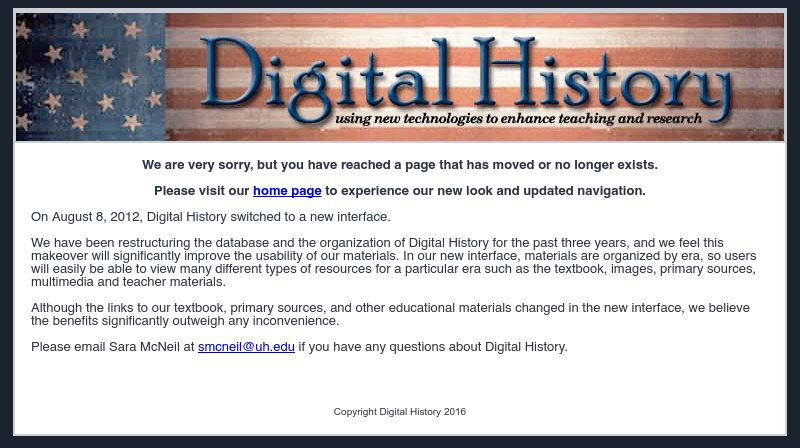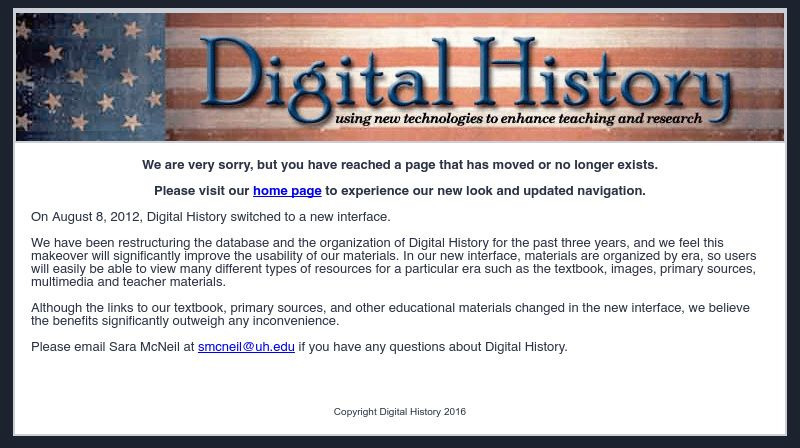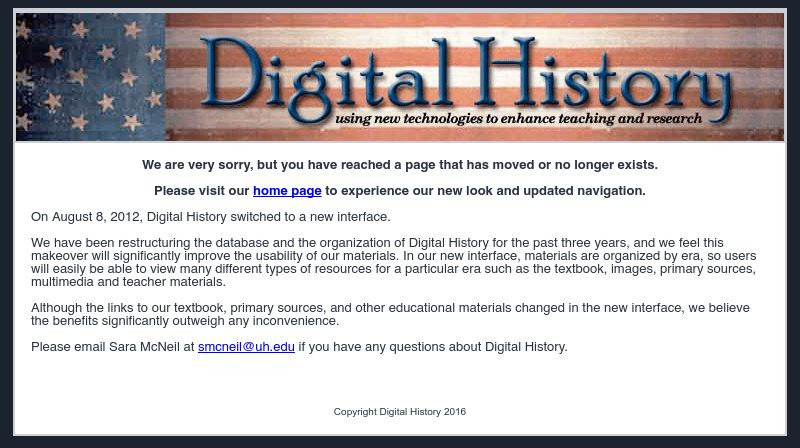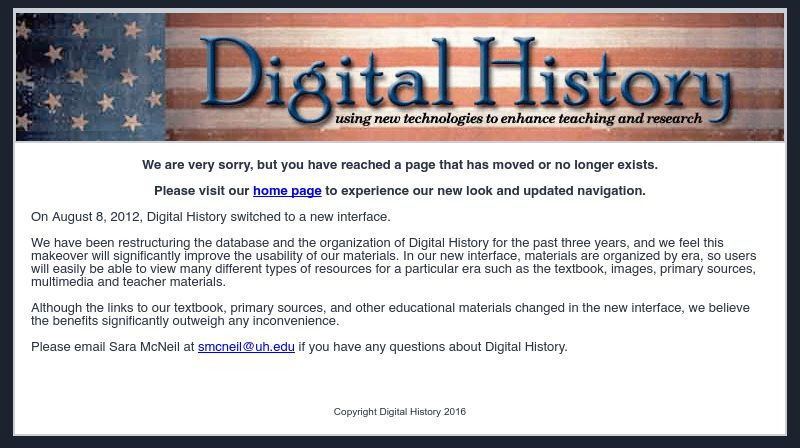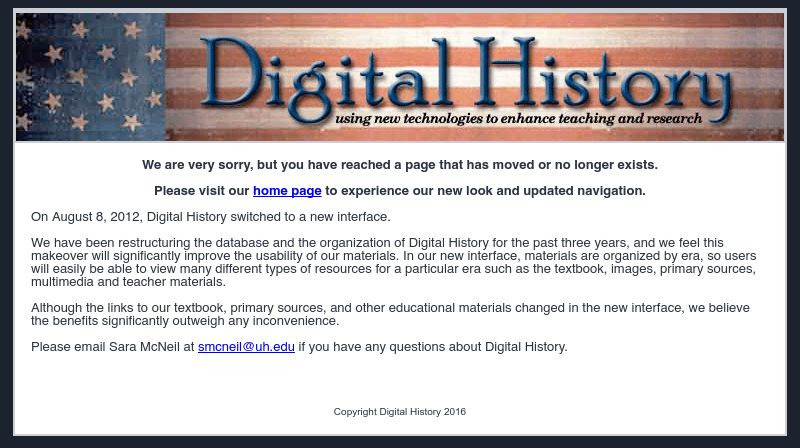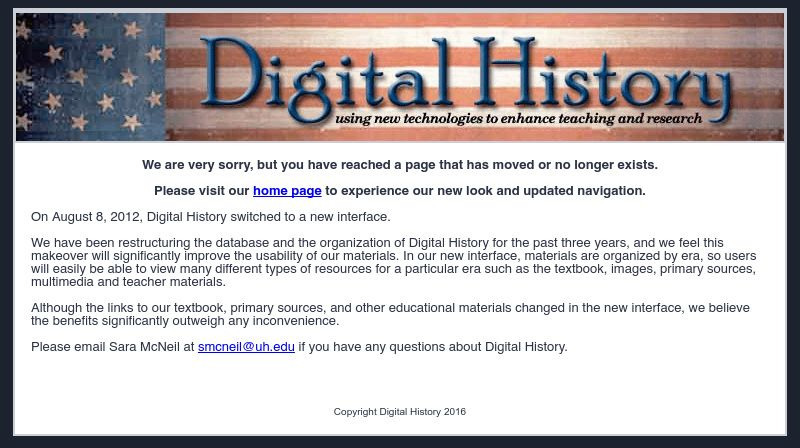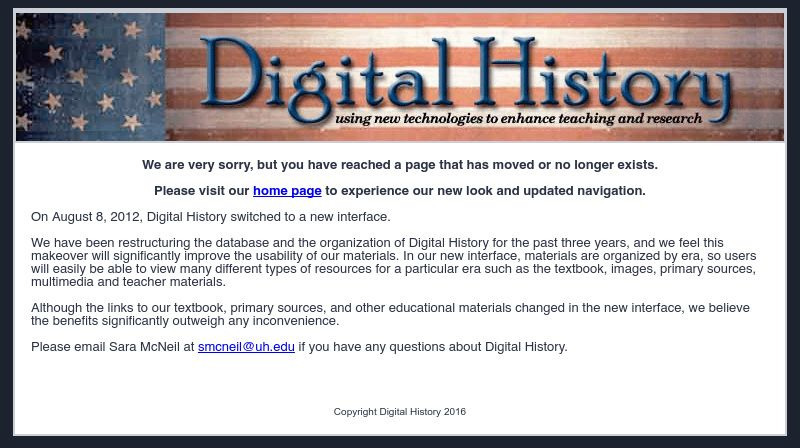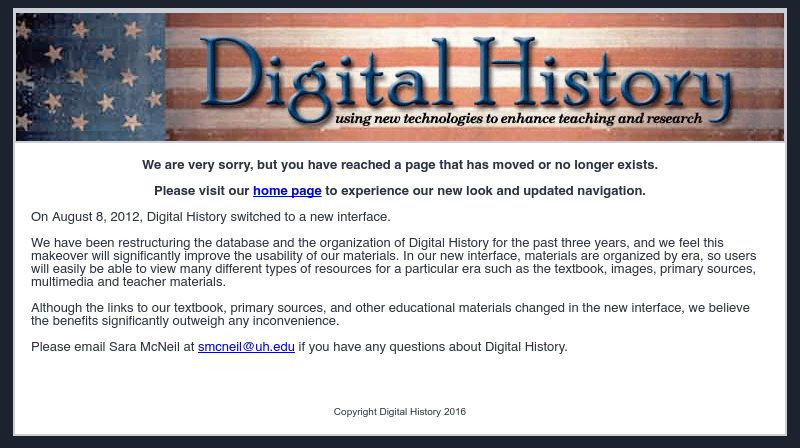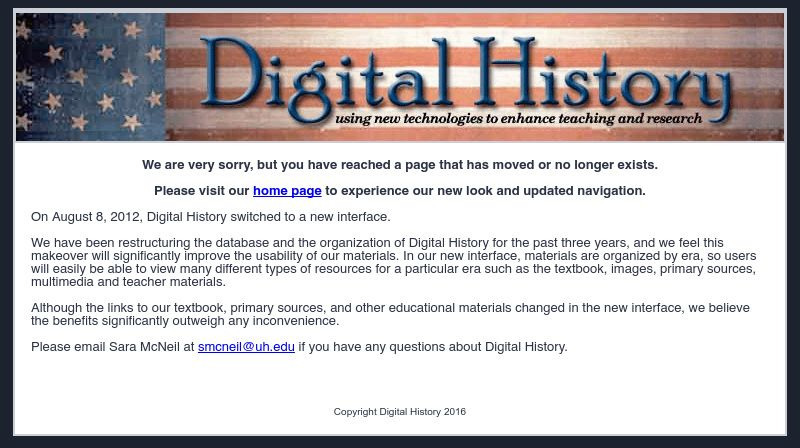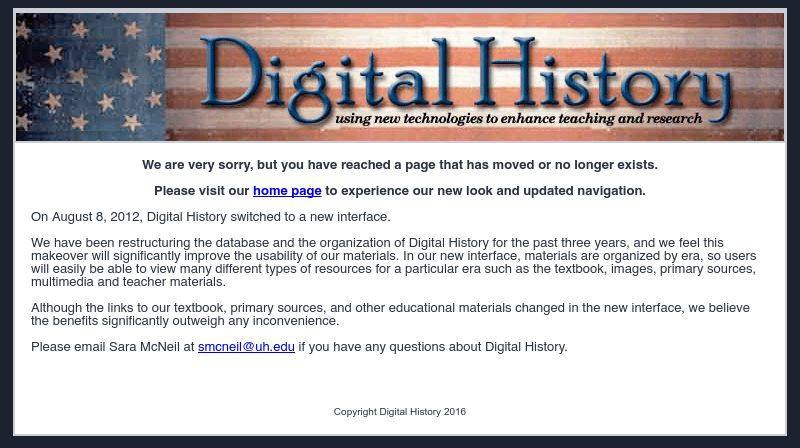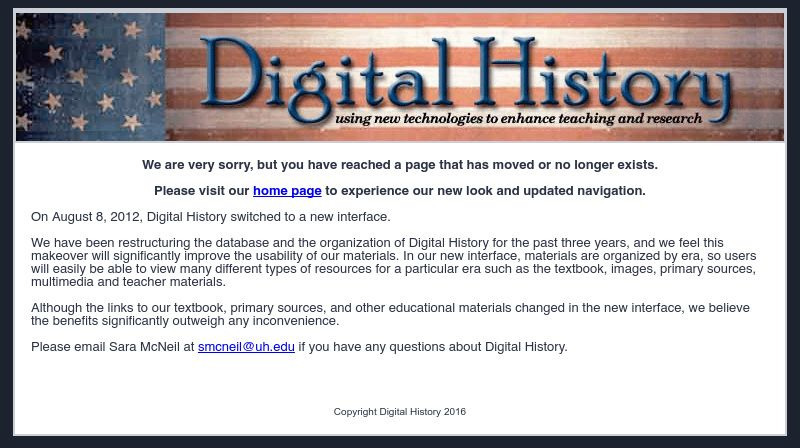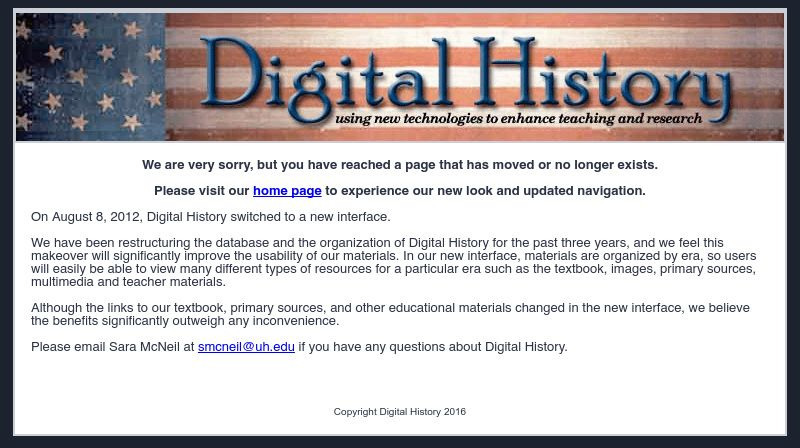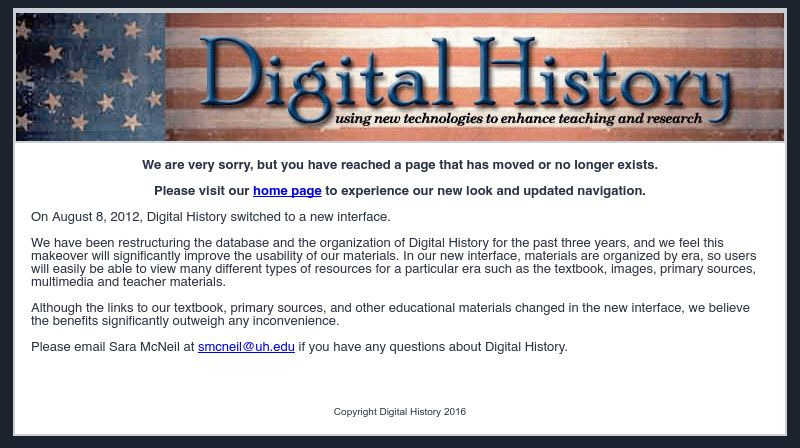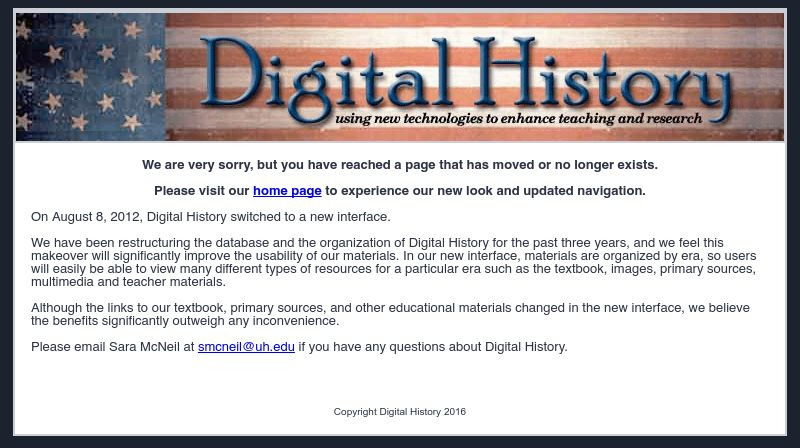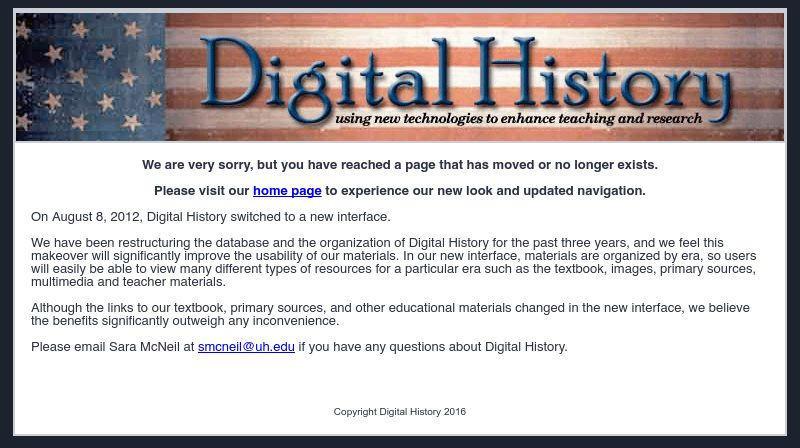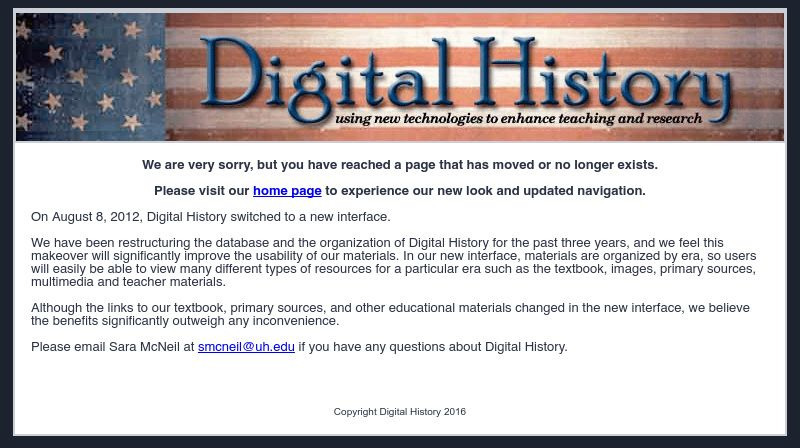Digital History
Digital History: The Impact of the Women's Liberation Movement
This site is an overview of the achievements of the women's movement including employment, wages, education, politics. Also recognizes problems that still exist including gender-specific jobs, wage inequity, divorce and poverty rates.
Digital History
Digital History: Before the American War
Before Vietnam became the stage for an American war against international communism, it was a war between France and Indochina. France, concerned about losing their colonial holdings in Indochina and therefore losing international...
Digital History
Digital History: The Disputed Election of 2000
Online summary of the dispute over the presidential election of 2000 and the outcome.
Digital History
Digital History: The War at Home
By the middle of the 1960s, American public opinion was beginning to favor US withdrawal from the Vietnam War. After the Tet Offensive in 1968 and Nixon's secret bombings of Cambodia, the majority of Americans were calling for complete...
Digital History
Digital History: Oil Embargo
This site has an overview of the causes of the 1970s energy and oil crisis.
Digital History
Digital History: Foreign Policy Triumphs
The Camp David Accords and the Panama Canal Treaty are two of Jimmy Carter's foreign policy achievements are discussed in this web-article.
Digital History
Digital History: Entering a New Century
As the U.S. approached the new century, it was an appropriate time to reflect on the accomplishments and failures of the 1900s both within the country and internationally.
Digital History
Digital History: The Age of Inflation
This site is a short article on inflation, but has a few prices of everyday goods from 1967 that might help in understanding inflation and how much prices have increased.
Digital History
Digital History: The Reagan Revolution in Perspective
By the end of Reagan's second presidential term, the US was a much different country than it had been when he became president in 1980. During his 8 years in office, Reagan accomplished many things, some good and some bad, and definitely...
Digital History
Digital History: Sources of Discontent
After World War Two, many women placed a higher priority on marriage and having a family. However, this trend changed during the 1950s and by 1960 more women were attending college, working outside of the home, marrying later, and having...
Digital History
Digital History: The Equal Rights Amendment
In 1972, Congress passed the Equal Rights Amendment (ERA) to the U.S. Constitution. The ERA subsequently failed to be ratified by the necessary number of states and was never added to the Constitution.
Digital History
Digital History: Foreign Competition
This site describes how by the 1970s, foreign manufacturers were embedded in the U.S. markets. For the U.S., this meant a loss of sales, a loss of jobs, and a loss of economic confidence.
Digital History
Digital History: Speeding Communications
A brief look at spread of information at increased speeds due to technological advances such as the telegraph, and the increase in newspaper circulation.
Digital History
Digital History: Transforming American Law
Changes in American law promoted economic growth. See how private companies were protected from penalties and liabilities, and were given special privileges because they contributed to the public good.
Digital History
Digital History: The Eve of the Industrial Revolution
A brief review of how the nation changed from 1790 to the 1820s. See how the production of goods moved from the home to factories and read about the change in the way workers were compensated.
Digital History
Digital History: The Laboring Poor
The plight of the working poor is not a new one. Read about the problems faced by unskilled workers in the mid-1800s.
Digital History
Digital History: Religion in the Early Republic: Introduction
A brief review of the role of religion in the lives of American founding fathers, and a hint of the changes to come in the 19th century.
Digital History
Digital History: Religious Liberalism
A brief description of the basis of Unitarianism in America and its influence on the reform movements of the time.
Digital History
Digital History: Enslaved African Americans and Religious Revivalism
A brief look at the role of Christianity in the lives of slaves in the 1800s. See how evangelicalism was reflected in the way slaves practiced their religion.
Digital History
Digital History:religious Ferment
The Second Great Awakening brought about the growth of Protestant denominations, and some new religions and sects.
Digital History
Digital History: African American Churches
African American churches served black congregations. Read about the several church denominations that were established in the early 1800s.
Digital History
Digital History: Religion and the u.s. Constitution
A very brief explanation of the three-pronged test the Supreme Court uses to determine the constitutionality of a governmental poiicy to ensure it doesn't advocate the establishing of religion.
Digital History
Digital History: Pre Civil War American Culture: Introduction
A very brief look at the almost non-existent American culture at the end of the 18th century and leading in the the 19th.



